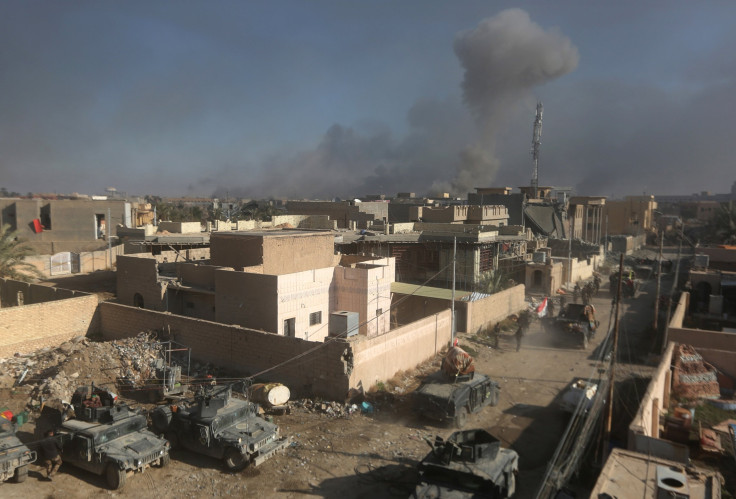ISIS Losing Money? Islamic State Money Storage Sites Destroyed By US Airstrike Bombings In Syria, Iraq

A United States-led coalition has "got the momentum" in the continuing fight against the Islamic State group, Defense Secretary Ashton Carter said recently, and that includes seriously depleting its resources.
An anonymous senior defense official told USA Today this week that airstrikes in Syria and Iraq have blown up roughly $500 million in cash while reducing oil revenue by half. The air campaign and ground forces have attacked money storage sites 15 times in recent months.
The extremist group, also known as ISIS or ISIL, is known not only for its violence but also its wealth. The militants tax the people in cities they control, collect ransom for hostages, produce oil from refineries they take over and loot banks, CNN reported. In 2014, ISIS was worth $2 billion.
"There is no simple or quick tool to separate ISIL from its vast wealth," assistant secretary for terrorist financing Daniel Glaser said in a February speech. "While this is challenging and there is much work to still be done, it is clear that we are now seeing progress: progress in weakening [ISIS's] ability to make money and in disrupting its ability to make use of the money it raises."
With airstrikes killing top ISIS leaders and ground troops liberating key territories, the group has had to limit its spending. Documents leaked in January revealed that fighters' salaries were slashed by 50 percent, TIME reported. Before the budget was imposed, fighters were making about $500 a month.
“These days, the situation has changed, and there is a shortage of money in Mosul,” Mosul sandwich seller Ayham Ali told the New York Times.
Similar reports about the U.S.-led coalition destroying ISIS cash reserves surfaced earlier this year, at which point it put out a video of a warehouse being blown up, according to ABC News.
“It's a significant amount of cash that we believe was in those various collection points before we struck them,” military spokesman Col. Steve Warren said at the time. "Obviously, it's impossible to burn up every single bill,” Warren said. “So presumably they were able to collect a little bit of it back. But we believe it was a significant series of strikes that have put a real dent in their wallet.”
© Copyright IBTimes 2024. All rights reserved.






















